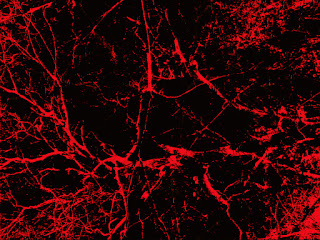Brain Fiction (5)
Self-Deception and the Riddle of Confabulation
The brain is capable of employing a wide range of checking procedures. This is to ensure that the owner of the brain can act intelligently with the environment and survive.
Hirstein
lists the following checking procedures that the brain is capable of:
- Checking against one’s autobiographical memory, factual knowledge, body representation, and internal contradictions. Checking the correctness of the current visual images.
- Checking of the effect that current thoughts might have on another person and observing the other person (mind-reading). This also includes checking the consequences and reward value of the current thoughts.
- Evaluating the level of confidence a person has in these thoughts and developing intentions to act on them
Confabulation
may result from a failure of one/some of these domains.
Religious
people may admit that their belief in God might be ill-grounded but
nevertheless hold true to their belief because that’s exactly the function of faith.
Confabulation occurs if they have a strong tendency to rely on ill-grounded claims.
Religious
leaders may even engage in fantastic confabulation, like: The End of World is
near, Jesus is coming back at a specific time, all people outside their
community are damned, modern technology is satanic, and the like. They would
preach this with great confidence and thus manipulate their audience (that is
not allowed to employ proper checking procedures and may have lost this ability
altogether).
Confabulators
have a low threshold for accepting thoughts as true beliefs and therefore believe
what they should doubt.
A
self-deceived person has a greater ability to access information that should allow
them to check if their belief is ill-grounded – but they do not employ this ---
whereas a (clinical) confabulator lacks the ability to do so.
Self-deception
is a form of self-induced weakness of the warrant (Daniel Dennett)
One way to
protect certain beliefs is to never think them through and check all the
ramifications. People might say: ‘Don’t tell me the details; I don’t want to know`.
Yes, it is so easy to only use our brain power to inhibit checking procedures.
Much damage
is done by people who don’t know that they don’t enough about the things they
say and decisions they take. Yes, they are ignorant (which is bad enough) – but
many show a complacent ignorance (and that makes it unbearable).
Well, no one may claim that truth is necessary for survival. If a person in the savannah mistakes an antelope for a wildebeest (gnu) and kills it, no one cares about his mistaken belief – because it serves food.
This is one reason why religions
don’t have to care much about truth – whatever they say feeds the soul – and that’s
apparently enough (evolutionary advantage). It seems that we need this
over-confidence.
Oh, now I’m
exhausted (and you should probably be as well) - though we have just scratched the surface (a
few inches deep). There is so much to say and many people have contributed valuable
insight. Please fee free to share your insights as well (and please mark your position):
- Clinical confabulator
- Sociopath
- Self-deceived normal person without tension (no urging drive)
- Normal confabulator
- Neutral normal person
- Self-deceived normal person with tension (urging drive)
- Lying normal person
- Obsessive-compulsive normal person
- Clinical OCD sufferer




Comments
Post a Comment